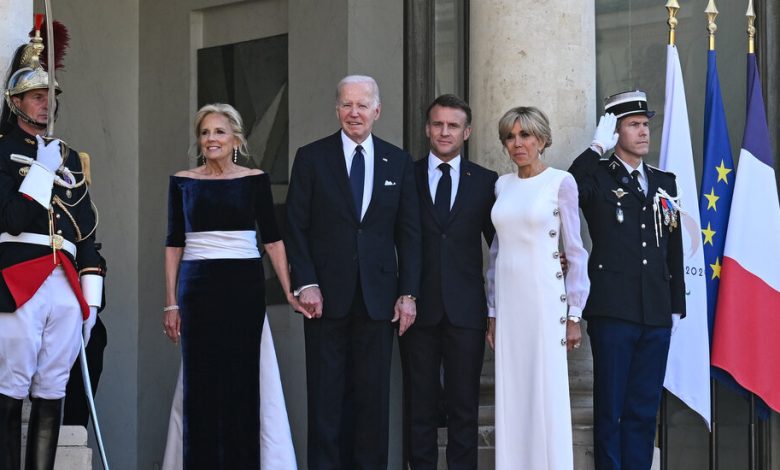French-American Friendship in Four Courses

Beneath the crystal chandeliers of the gilded reception hall of the Élysée Palace, opened in 1889 with a party for 8,000 people, President Emmanuel Macron of France hosted President Biden on Saturday night at a state dinner intended to celebrate a very old alliance and demonstrate that the bond is greater than its intermittent frictions.
Mr. Biden, addressing the French leader as “Emmanuel,” rose from a long table adorned with a bouquet of pink peonies and roses to say that “France was our first ally, and that is not insignificant.” He cited a book titled “The Pocket Guide to France” that he said was distributed to the American forces who, eight decades ago, fought their way up the Normandy bluffs through a hail of Nazi gunfire to wrest Europe from tyranny.
“No bragging,” Mr. Biden quoted the guide as saying, “the French don’t like that!” The book urged U.S. solders to be generous — “it won’t hurt you” — and said the French “happen to speak democracy in a different language, but we are all in the same boat.”
That “same boat” of 1944 has repeatedly been invoked during Mr. Biden’s five-day visit to France as still existing today in the form of joint French and U.S. support for Ukraine in a battle against Russia defined as pivotal for the defense of European liberty. “We stand together when the going gets tough,” Mr. Biden said.
The going was scarcely that at a sumptuous dinner served at tables set between the fluted columns of a room conceived a century after the French Revolution to project the glory of the Republic.
Beneath golden caryatids and a painted ceiling medallion reading “The Republic safeguarding peace,” battalions of liveried waiters in white bow ties, bearing silver trays, served with impeccable precision a four-course meal accompanied by champagne and a 2006 Château Margaux that had taken 18 years to achieve perfection.
